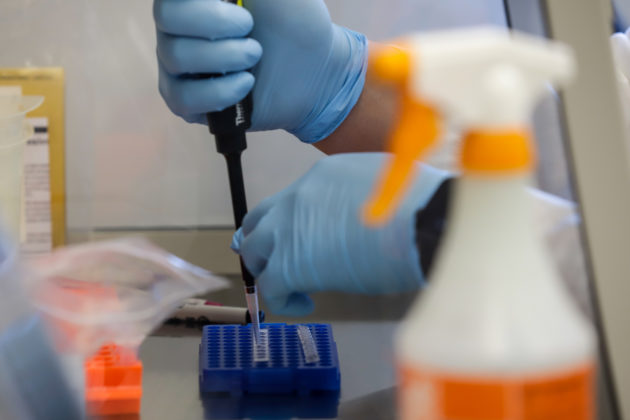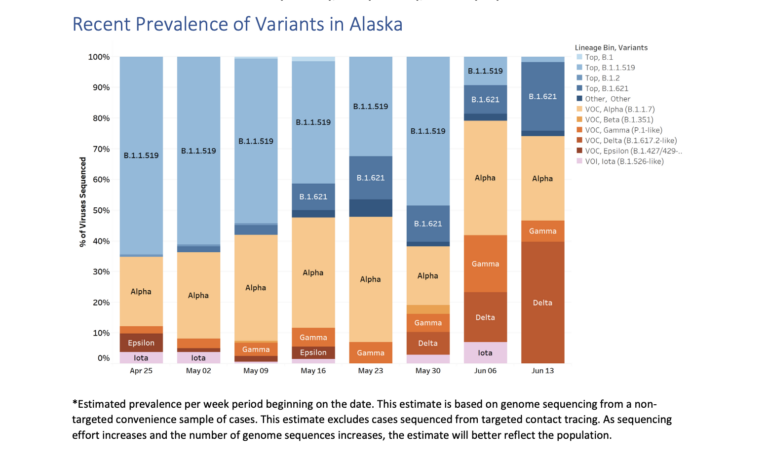
Alaska’s viral detectives have recorded a sharp increase in the number of cases of the more-contagious delta variant of the virus that causes COVID-19, with the strain jumping from 7% to 40% of samples in just two weeks, according to a new report published this week.
“We’re looking at a really fast-moving, infectious virus,” said Jayme Parker, who heads Alaska’s public health labs.
The numbers recorded by the researchers conducting viral sequencing — the complicated and labor-intensive process of detecting variants — don’t provide a perfect picture of how delta is spreading across the state because some regions have higher levels of sequencing than others.
But officials say that the delta variant’s fast-growing share of the samples analyzed in Alaska tracks with what’s happening across the country, as the substantially more-contagious strain crowds out others.
The delta variant made up an estimated 3% of cases in the U.S. in mid-May, according to the Centers for Disease Control and Prevention. A month later, it represented 30%.
State officials say that the variant threatens to boost the number of cases in Alaska, which have been ticking up from recent lows for the past three weeks, and potentially to put new stresses on the state’s health care infrastructure.
But they also underscore that existing vaccines still appear to be highly effective against the strain — which, they say, provides another argument for getting the shots.

“While every choice we make has risks and benefits associated with them, for the vast majority of people, getting vaccinated is a much safer choice for preventing illness and minimizing the impacts of this virus on your life,” Dr. Anne Zink, Alaska’s chief medical officer, told reporters at a briefing Thursday. “I just continue to encourage Alaskans to seriously consider that option, particularly as we see the delta variant spreading.”
The delta variant was first identified last year in India, and it’s now present in all 50 states. Research suggests it’s 50% more contagious than the alpha variant, which itself was 50% more contagious than the original strain of the virus first seen in China. Preliminary research also suggests that the delta variant can cause more severe illness, though those findings are not conclusive.
The strain was first detected in Alaska in late May, in the greater Anchorage area. But cases have now been discovered in many other parts of the state, according to the sequencing report published this week by state and university researchers.

That report shows just how quickly the variant took hold in Alaska: In the week of May 23, researchers found zero cases of the delta variant through their sequencing work. The next week, Delta represented 7% of cases, then 16% the following week, and 40% the week of June 13, which is the latest available data. There’s typically a lag in getting sequencing data because it takes time for researchers to access and process samples.
Officials aren’t downplaying the risk posed by the delta variant. But they say that it doesn’t change the underlying public health tools they’re using to fight the COVID-19 pandemic — whether that’s treatments for individual patients or community-wide recommendations to slow transmission.
“In terms of prevention, the same strategies apply,” Dr. Joe McLaughlin, the state epidemiologist, said at Thursday’s briefing. “It’s more like an escalation.”



